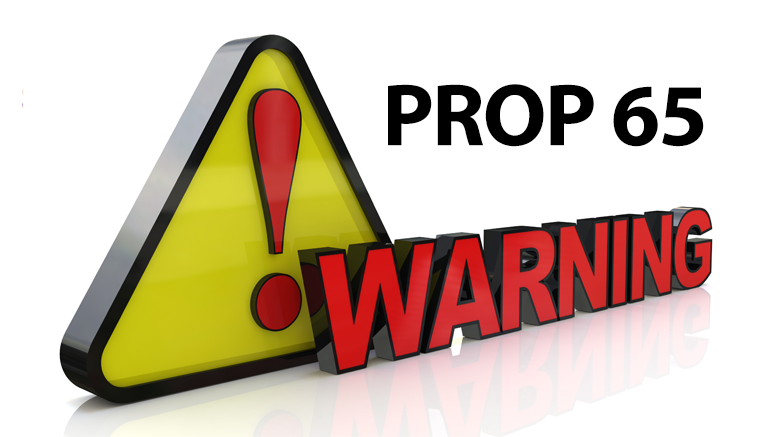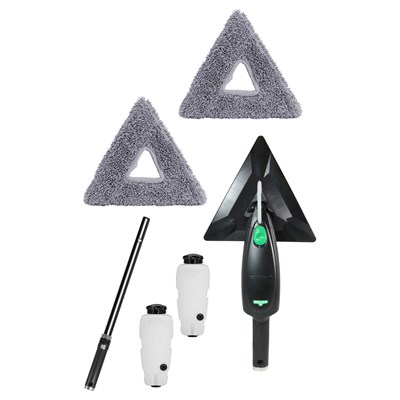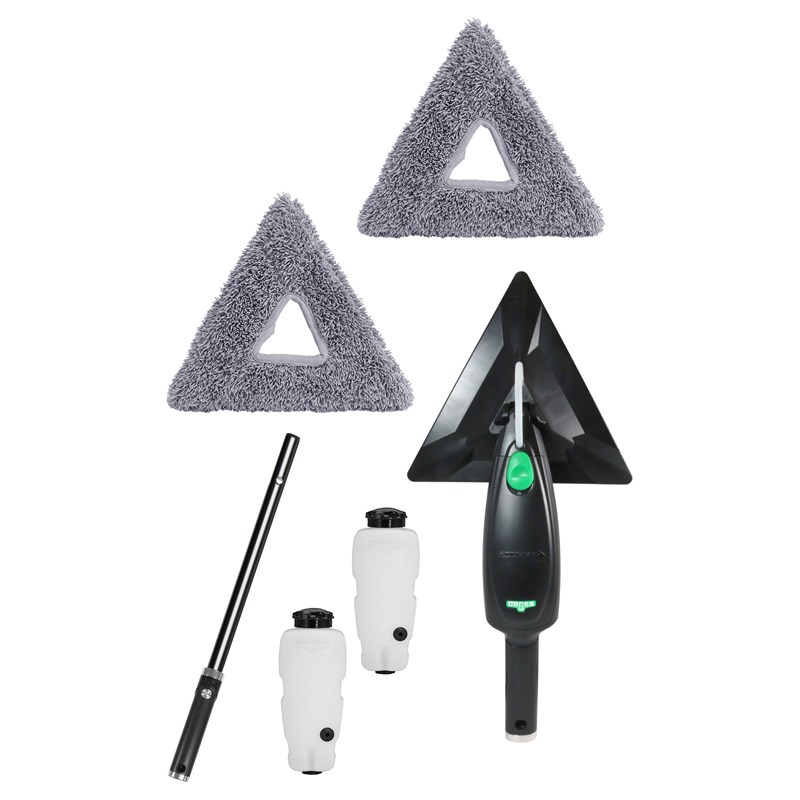Stingray Indoor Cleaning Kit 3ft
Quick Overview
- Great for interior cleaning of glass and hard surfaces
- Public Areas: No open air spray, minimizing airborne chemicals.
- Hard to Reach Areas: Low-profile, triangular head to reach all spaces.
- Minimize cross contamination with using reusable, interchangeable pads
- The spray nozzle is convenient to use and captured in the middle of the cleaning pad to reduce or eliminate overspray
Show More
Unger’s Stingray Indoor Hard Surface Cleaning System cleans your indoor glass drip and spot free,.
Clean walls, desks, tables, glass and plexiglass surfaces.
Longer Kits and Extension sections allow you to easily reach high access, hard to reach areas without the need for ladders or moving furniture. Whichever Stingray surface cleaning equipment you choose, the unique design will help clean windows and hard surfaces faster.

The new Stingray Refillable System allows you to use your preferred surface and indoor window cleaning solution while still gaining all the safety, speed and cleaning benefits Stingray provides.
- Great tool for cleaning indoor glass, hard surfaces.
- Designed to leave windows and mirrors spotless.
- The spray nozzle sprayes in the center of the pad and this prevents chemicals from spreading around.
- Triangular handle and pole shape offers an ergonomic, comfortable grip
- Refillable 5 oz Bottle allows you to use the cleaning solution of your choice
- Kit includes 2 – looped pile long microfibers for removing heavy dirt and grime
- Pads can be washed: 300 times
PRO TIP: Use the 1.5 foot extension pole at the top, just below the head, for the best control and rigidity!


Proposition 65 requires businesses to provide warnings to Californians about significant exposures to chemicals that cause cancer, birth defects or other reproductive harm. These chemicals can be in the products that Californians purchase, in their homes or workplaces, or that are released into the environment. By requiring that this information be provided, Proposition 65 enables Californians to make informed decisions about their exposures to these chemicals. Proposition 65 also prohibits California businesses from knowingly discharging significant amounts of listed chemicals into sources of drinking water. Proposition 65 requires California to publish a list of chemicals known to cause cancer, birth defects or other reproductive harm. This list, which must be updated at least once a year, has grown to include approximately 900 chemicals since it was first published in 1987. Proposition 65 became law in November 1986, when California voters approved it by a 63-37 percent margin. The official name of Proposition 65 is the Safe Drinking Water and Toxic Enforcement Act of 1986.
The list of chemicals contains a wide range of naturally occurring and synthetic chemicals that include additives or ingredients in pesticides, common household products, food, drugs, dyes, or solvents. Listed chemicals may also be used in manufacturing and construction, or they may be byproducts of chemical processes, such as motor vehicle exhaust. For more information visit www.p65warnings.ca.gov/





